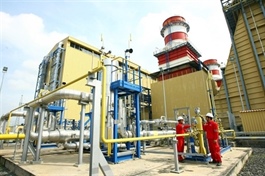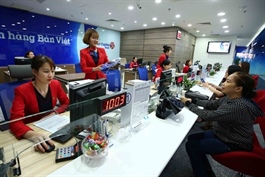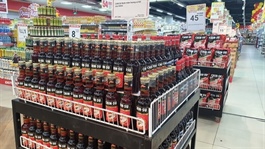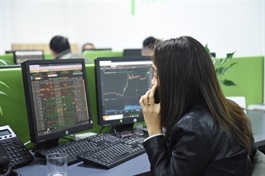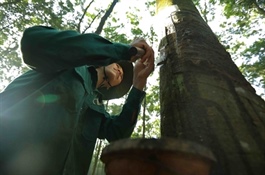KRX system's operation delayed
KRX system's operation delayed
It was expected that the new KRX stock trading system would start operations on December 25. However, there hasn't been any official information from the Hồ Chí Minh Stock Exchange (HOSE), the project's investor.
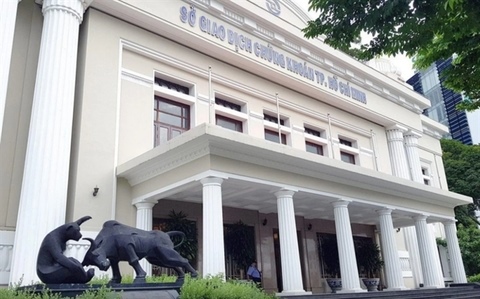
Outside the headquarters of the Hồ Chí Minh Stock Exchange in HCM City. — Photo nld.com.vn |
In fact, the market has speculated that KRX has encountered a delay. This is because, on December 21, HoSE sent a letter to securities companies regarding the continuation of the KRX project testing.
Particularly, the testing was scheduled to take place from December 22 to 24. The exchanges requested securities firms to promptly report any errors or issues encountered during the testing phase and submit a test result report for the factory acceptance test (FAT) stage by December 25. It can be seen that the testing phase with securities companies has not yet been completed.
Furthermore, according to research, it is not easy to bring the KRX into operation. It will take several days, even weeks, for the transition to occur.
In addition, the KRX system requires approval from the appropriate authorities before it can be put into use. Thus, it's not simply a matter of the December 25 operational date being missed; it's also possible that KRX will encounter difficulties operating during December.
In September, the Vietnam Stock Exchange (VNX) sent an official dispatch to member securities companies about testing the KRX information technology system for the second time.
By October, HoSE held a meeting to evaluate the implementation status of the KRX project before officially putting it into operation.
At that time, based on the test results updated to the extended eUAT (user testing) phase, there were a total of 59 to 76 securities companies that successfully tested 100 per cent of the functions, equivalent to a rate of nearly 78 per cent.
For the corporate bond and stock markets, order testing has involved all 76 member securities companies. With the exception of Tân Việt Securities and BOS Securities, the remaining 22 companies have experimented with placing orders in the futures market, while out of the 64 members, 56 have tested the system using the government bond market.
Through the testing process, it can be seen that although the rate of meeting the scenario is quite high, the readiness level of operation of the securities companies' system is still low.
Specifically, there are also 66 businesses (87 per cent) rated as not ready.




